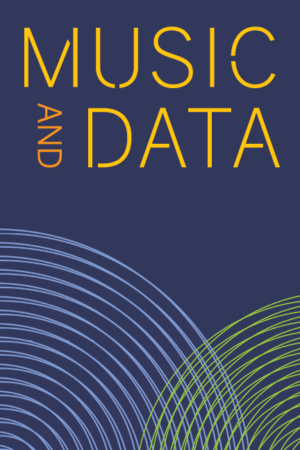UC Press Launches New Journal "Music and Data": Meet the Editors

University of California Press is launching Music and Data, an annual, thematic, online-only journal, in 2026 under the co-editorship of Thomas Hodgson, University of California, Los Angeles, and Rujing Stacy Huang, The University of Hong Kong. Music and Data is a peer-reviewed scholarly journal that aims to bring music and sound studies (broadly conceived) into dialogue with data science to analyze the impact new technologies have on music cultures in global contexts past, present, and future. We asked Tom and Stacy, Music and Data's editors to tell us more about themselves and what they have planned for the journal.
What are your research interests and areas of expertise?
Tom: I’m an ethnomusicologist and music industry scholar, and my work sits somewhere between the fields of music, technology, and global culture. Over the past 15 years I’ve mainly done fieldwork in Pakistan, the UK and the Persian Gulf. More recently I’ve become fascinated by the role algorithms and AI play in shaping music cultures, especially in parts of the world that are both geographically and culturally distant from where these technologies are designed and built.
Stacy: Like Tom, I am an ethnomusicologist by training and my research interests sit at the intersections of musicology (broadly defined), critical AI studies, and philosophy. I have worked with music traditions and genres ranging from imperial Chinese court music to AI-generated “machine folk,” with a latest focus on the political economy of music AI, that is, “creative” AI technologies in relation to questions of labor, exploitation, and value. I am also a co-director of the AI Song Contest Foundation, which organizes an annual international competition exploring human-AI partnership in songwriting.
What inspired you to launch Music and Data?

For a while now, we’ve felt a gap in the way we study and publish research on music in the age of “big data”. There’s a huge amount of research happening – from the economics of streaming, algorithmic recommendation systems, generative AI . . . —but it’s kind of scattered across different disciplines: musicology, computer science, media studies, law; we could go on. We wanted to create a space where these conversations could meet.
We also felt quite strongly that there needed to be a home for “music and data” to be positioned as a humanistic field of enquiry. The technology driving music today isn’t neutral, it reflects human decisions, cultural values, and social inequalities. A journal that foregrounds this perspective, while still engaging with technical and industry insights, felt essential.
Why is this journal needed now?

It’s hard not to feel like we are at a seminal moment in music history. In just the past decade we have seen streaming transform the way music is distributed and consumed globally, and now generative AI is impacting questions of musical creativity. At the same time, data has in many respects become the currency of the music business, affecting everything from how songs are written, to what we hear, to how artists get paid. Music and Data aims to help meet these developments by encouraging submissions with similarly bold methodological innovations.
How will the journal influence the field?
Our aim is to create a space where cutting-edge research on music and data doesn’t just get published, but actively shapes the ongoing conversation and latest practices in the field. This means we very much welcome work that develops new and/or mixed methods for working with (and against?) music data, that brings in underrepresented perspectives and geographies, that bridges disciplinary fields, and that can speak to academics, industry audiences, and the broader public. Importantly, we want to make sure the journal is relevant to scholars and practitioners across the world, not just in America and Europe. That means seeking out—and welcoming—work that examines local contexts, vernacular practices, and the diverse ways music and data intersect globally.
What are your aims for the journal?
First and foremost, we want Music and Data to be a place where people feel excited to publish, and where readers feel they are learning something they couldn’t get anywhere else! Ultimately our hope is that the journal becomes the go-to place for anyone who wants to understand the cultural, social, and political stakes of music in a datafied world.
What’s your plan for the first issue of Music and Data?
On 10-12 December 2024, The First International Conference in AI Music Studies (AIMS) convened in central Stockholm, Sweden, gathering scholars from a broad spectrum of disciplinary backgrounds and across the world. Among the fruitful discussions were the challenges, prospects, and methodologies of critically studying music generated by AI technologies—or AI music—and the need to inaugurate a field dedicated to the study of such music. The first issue of Music and Data will be a guest-edited thematic issue that captures and further develops this timely dialogue. Moving forward, we also welcome proposals for future thematic issues that align with the aims and scope of the journal, emphasizing interdisciplinary and global perspectives on the impact of technologies on music cultures.
To learn more about Music and Data, including how to submit proposals, please visit the journal's website.